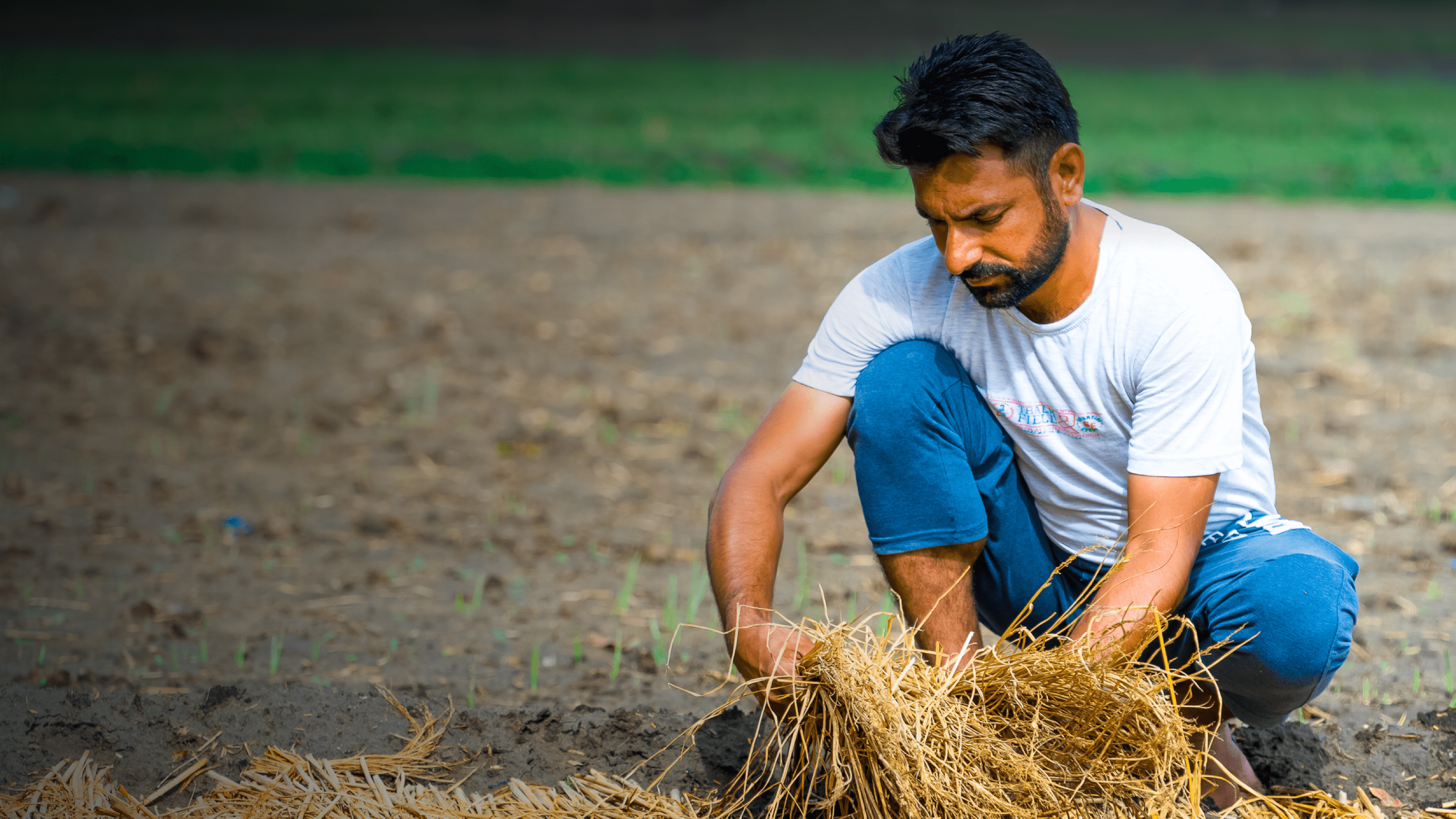Surinder Singh’s earliest memories are of playing in his village with birds chirping in the background. Over the years, the birds went quiet, dying from pesticide-infused toxic food. Then the vultures died after feeding on the carcasses of oxytocin-injected cattle. Gradually, the climate changed. The “loo” winds that blew sharp and hot for a month, killing mosquitos before the onset of monsoons, now barely breezed in for a day. The rains became unpredictable and infrequent.
However, the crop yield from his family farm doubled as, like many others in Punjab, they adopted the wheat-paddy monoculture and plied the soil with synthetic fertilizer and pesticides. Until one day, it all blew up.
The Green Revolution transformed Punjab into India’s breadbasket, but it extracted a high environmental cost. The fertile soil has degraded to polluted mud, contaminating ground water, and resulting in an increase in human and livestock diseases.
The high cost of production and diminishing economic returns is affecting farmers so severely that a state that was once known for its flourishing agrarian economy is now dealing with a ‘farmer suicide’ crisis.
Organic agriculture- making a positive impact beyond farming.
When Roundglass Foundation stepped in to offer organic farming support in his village, Surinder Singh was the first to sign up. Surinder was hesitant when he was told that the returns would dip initially. However, the foundation’s promise to compensate him for the deficit during the three-year transition and help in certification removed all his doubts.
Singh has produced at home the organic compost he uses in the soil that will help control erosion, retain moisture and nutrients, and manage weeds. After cover cropping, he was surprised to find that the ground was holding better, and weeds could be controlled without chemicals.
The basmati he sowed instead of the water-guzzling paddy is also pushing up green and firm. In time he hopes the natural ecosystem will be revived as well.
"Living on a farm and seeing the life around you is incredible, but it's very vulnerable to our influence. It's important to make sure our food choices don't impair that. When we switch to organic, we think beyond ourselves. The choices we make have a huge impact on every other part of our ecosystem."
Finding joy in growing food the right way, Singh has become RGF’s advocate for organic farming, explaining to other farmers how natural farming practice is both thoughtful and profitable.
“It’s important for us to know what’s in our food and that we’re doing the best we possibly can for future generations,” says Singh. “We can’t keep using chemicals the way we have been for the last 50 years. You don’t want poison in your food and don’t want other people to consume toxins either.”
